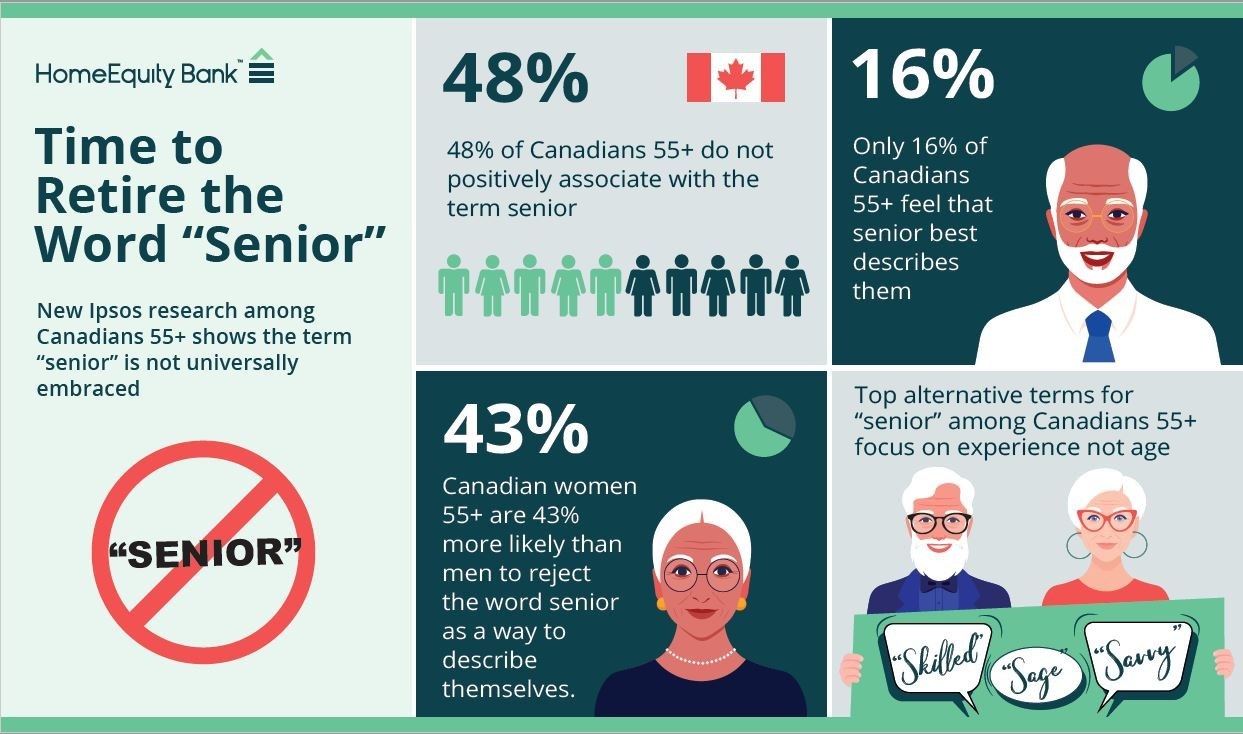HomeEquity Bank is calling on Canadians to retire the word that is not universally accepted

How do you refer to your clients aged 55 and over? The ‘older’ generations? The retired and soon-to-retire? Seniors?
That last word is one that is often used as a convenient handle and one that appears to convey respect for those that have managed more than half a century on the planet, while avoiding branding them as ‘old’.
In fact, today (Oct 1) is Canada’s National Seniors Day.
While the words we use to describe demographic groups may easily be dismissed as semantics, it’s also easy to forget that getting them wrong is likely to alienate clients and prospective clients.
HomeEquity Bank is calling on Canadians to ditch the use of the word ‘senior’ after its research showed that many over 55s simply don’t identify with it.
In an Ipsos survey conducted for the bank, which provides home equity based retirement solutions, just 16% of respondents said that the word senior describes them completely.
Men (53%) are more likely to embrace the word than women (37%) but overall, only around half of respondents said they have a positive association to it.
"Wanting to live an exciting, fulfilling life doesn't stop when you hit a certain age. Canadians 55+ are some of the most vibrant, creative and dynamic members of our communities," said Yvonne Ziomecki, EVP at HomeEquity Bank. "The word senior doesn't resonate with everyone in the age group, and it's time for individuals and brands to challenge the term that paints this diverse group of Canadians the same. With disruptive, reimagined language around aging we can embrace a more inclusive and effective way of communicating."
What word should we use?
If we are to stop calling over 55s seniors, what should we call them instead?
Among those about to retire, the research revealed that words such as "skilled," "sage" and "savvy" were the top alternatives suggested, although none were universally accepted.
Perhaps it’s time we stopped grouping people altogether and just treat them as individuals?

Image credit: CNW Group/HomeEquity Bank



